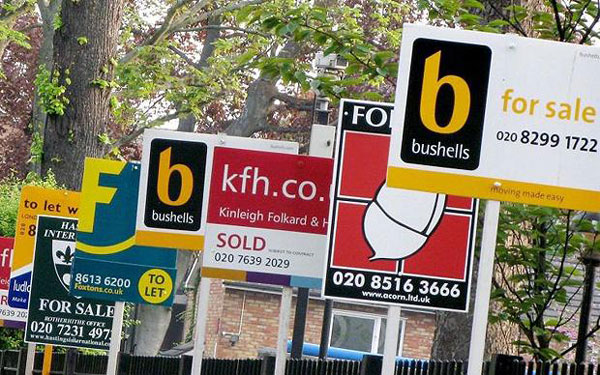First-time Buyer
House prices rise in August despite end of stamp duty holiday

Average house prices increased 2.1 per cent from July to August, the second largest gain for 15 years, according to latest figures.
This compares to a month-on-month contraction between June and July of -0.6 per cent, with the increase this month described as “substantial” by Nationwide’s chief economist Robert Gardner.
Nationwide’s house price index said that the average house price in August came to £248,857, and it also noted annual house price change was 11 per cent, which is the fourth month of double-digit increases.
Gardner said: “The bounce back in August is surprising because it seemed more likely that the tapering of stamp duty relief in England at the end of June would take some of the heat out of the market.”
He added that it was the strength may reflect strong demand for properties priced between £125,000 and £250,000 to take advantage of stamp duty relief in place until September, despite savings being lower.
He said: “Lack of supply is also likely to be a key factor behind August’s price increase, with estate agents reporting low numbers of properties on their books.”

Why Life Insurance Still Matters – Even During a Cost-of-Living Crisis
Sponsored by Post Office
This was echoed by founder and chief executive officer of GetAgent.co.uk, Colby Short, who added: “We’re simply not seeing the market decline that many expected, both as a result of the stamp duty holiday being phased out, and the wider economic influence of increasing unemployment levels.
“This is undoubtedly due to the continued imbalance between current demand and the level of stock available to satisfy the appetite of the nation’s homebuyers. While these two factors remain out of kilter, house prices will continue to climb.”
Jeremy Leaf, north London estate agent, added: “Prices are still underpinned by an acute shortage of stock in some areas but ample supply of mortgage finance.
“Confirmation of post-furlough working arrangements is contributing to a release in more pent-up demand which, if the strong signs on the ground are anything to go by, is likely to continue until the end of the year at least.”
Property price outlook
Gardner continued that underlying demand would remain “solid” in the near term, pointing to growing consumer confidence as well as low borrowing costs. He added that lack of supply in the market would also buoy prices.
However, he said that towards the end of the year activity is likely to soften as stamp duty holiday ends, but the strength of the labour market would be a crucial factor.
He said: “Underlying demand is likely to soften around the turn of the year if unemployment rises, as most analysts expect, when government support schemes wind down. But even this is far from assured.
“The labour market has remained remarkably resilient to date and, even if it does weaken, there is scope for shifts in housing preferences as a result of the pandemic to continue to support activity for some time yet.”
Mark Harris, chief executive of mortgage broker SPF Private Clients, added: “As we head into autumn, we expect more of the same for now. With lenders reducing rates across loan-to-values, and not just for those with the biggest deposits, there are opportunities for first-time buyers and home movers alike.”
Director of Benham and Reeves, Marc von Grundherr, said: “We’re seeing no letup in the extreme levels of house price growth seen in recent months. These hot market conditions are likely to remain beyond the summer months and well into autumn as we enter what is traditionally one of the busiest times of the year for the UK market.”
He said that there could be a slight dip at the end of year, but marginal monthly declines could just be due to seasonal influences.